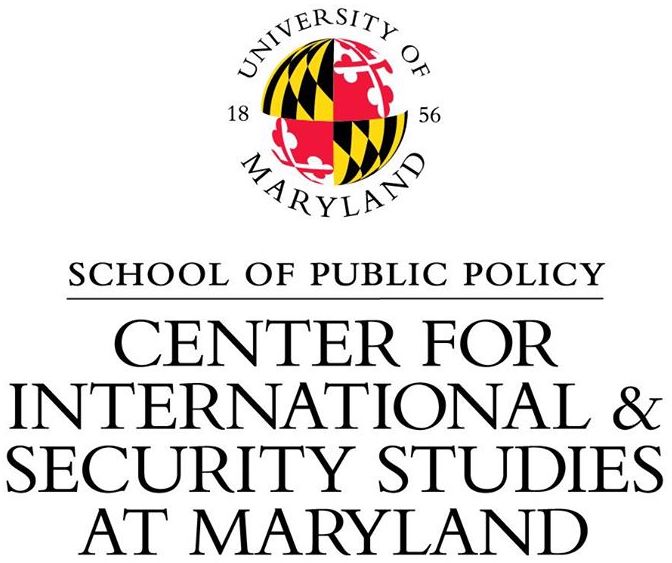Publishing Institution:

Center for International and Security Studies at Maryland (CISSM)
The Center for International and Security Studies at Maryland (CISSM) conducts research, informs policy debates, and helps current and future leaders find creative solutions to complex global challenges. Three cross-cutting themes connect faculty, researchers, and students working on CISSM’s research agenda. 1) Reducing risks from dual-use technologies: A growing list of increasingly powerful technologies are being used by an expanding number of governments, businesses, and civil society members. To facilitate beneficial uses of nuclear, cyber, and space technologies, for instance, while preventing deliberate or inadvertent misuse that could cost millions of lives or billions of dollars, technological advances must be matched by policy innovations. 2) Enhancing human security: Far more people are killed by civil violence, terrorism, infectious disease, and natural disasters than by hostile states armed with advanced military technology. Yet policymakers spend far more time and resources preparing to deter or defeat deliberate attack than working proactively to prevent civil violence, mitigate climate change, increase resilience, and rebuild more effectively when disasters cannot be prevented—an imbalance that should be corrected. 3) Improving multi-stakeholder governance: Few twenty-first century security challenges can be handled effectively by national governments alone. States can no longer fulfill the most basic requirements for sovereignty without finding more effective ways to cooperate with each other and with international organizations, transnational civil society groups, and private industry.
Visit Site
Resources:
-
September 09, 2019
Do as I Say, and as I Do:
Chinese Leadership in Nuclear Security
By:
Sara Z. Kutchesfahani
-
August 30, 2019
China’s evolving nuclear
export control regime
By:
Xu Chunyang
-
August 26, 2019
China on Arms Control, Nonproliferation, and Strategic Stability
By:
Nancy Gallagher
-
July 29, 2019
North Korea’s Shift to Diplomacy in 2018: A Result of U.S. Pressure or North Korean Security Calculus?
By:
Naoko Aoki
-
June 13, 2019
Can Non-State Actors Help to Overcome Barriers to State Cooperation? The Case of Global Climate Governance
By:
Poorti Sapatnekar
-
March 03, 2019
A Russian View of the U.S. INF Withdrawal
By:
Victor Esin
-
March 03, 2019
An Effects-Centric Approach to Assessing Cybersecurity Risk
By:
Charles Harry, Nancy Gallagher
-
December 17, 2018
Civil Society and Civil War Onset:
What is the Relationship?
By:
Davin O'Regan
-
December 03, 2018
The Militarization of the Arctic is Not Certain
By:
Rachael Gosnell
-
August 27, 2018
Forwarding Multilateral Space Governance: Next Steps for the International Community
By:
Theresa Hitchens
-
July 11, 2018
Will North Korea Denuclearize after the Singapore Summit? Lessons from the past
By:
Naoko Aoki
-
April 23, 2018
Arms Control as Uncertainty Management
By:
Amy J. Nelson
-
March 31, 2018
Building Confidence in the Cybersphere: A Path to Multilateral Progress
By:
Nancy Gallagher, Theresa Hitchens
-
February 28, 2018
Classifying Cyber Events: A Proposed Taxonomy
By:
Charles Harry, Nancy Gallagher
-
February 16, 2018
Future Challenges for Israel’s Iron Dome Rocket Defenses
By:
Ari Kattan
-
January 16, 2018
The NATO/US-Turkey-Russia Strategic Triangle: Challenges Ahead
By:
Nilsu Gören
-
December 21, 2017
Contrasting Russian Perspectives on Coercion and Restraint in Russia’s Security Relations with the West
By:
anya Loukianova fink
-
October 20, 2017
International Cybersecurity Information Sharing Agreements
By:
Nilsu Gören, Theresa Hitchens
-
September 07, 2017
KEDO: How Multilateral Cooperation Helped an Unprecedented North Korean Project
By:
Naoko Aoki
-
July 28, 2017
The Ramifications of Rouhani's Re-election
By:
Nancy Gallagher, Ebrahim Mohseni, Clay Ramsay
-
July 12, 2017
Safeguards-by-Design for Advanced Nuclear Systems
By:
Lance Kim
-
May 01, 2017
Stability at Low Nuclear Numbers
By:
Catherine Kelleher
-
April 11, 2017
Categorizing and Assessing the Severity of Disruptive Cyber Events
By:
Nancy Gallagher, Charles Harry
-
January 02, 2017
The Tactical Utility and Strategic Effects of the Emerging Asian Phased Adaptive Approach Missile Defense System
By:
Jaganath Sankaran
-
January 02, 2017
Turkey’s Turbulent Journey with the EPAA and Quest for a National System
By:
Nilsu Gören
-
January 02, 2017
Missile Defense, Extended Deterrence, and Nonproliferation in the 21st Century - Collected Papers
By:
Catherine Kelleher
-
January 02, 2017
GCC Missile Defense: Obstacles on the Road to Integration
By:
Ari Kattan
-
January 02, 2017
Seeing Missile Defense as U.S. Hostility, North Korea Aims at More and Better Weapons
By:
Naoko Aoki
-
January 02, 2017
Ballistic Missile Defense in South Korea: Separate Systems Against a Common Threat
By:
Joshua Pollack
-
September 15, 2016
Turkey's Nonnuclear Decisions on Nuclear Issues
By:
Nilsu Gören
-
May 02, 2016
Clouds of Suspicion: Airspace Arrangements, Escalation, and Discord in U.S./NATO-Russian Relations
By:
anya Loukianova fink
-
February 03, 2016
Iranian Attitudes in Advance of the Parliamentary Elections: Economics, Politics, and Foreign Affairs
By:
Nancy Gallagher, Clay Ramsay, Ebrahim Mohseni
-
August 04, 2015
A Framework for Categorizing Disruptive Cyber Activity and Assessing its Impact
By:
Charles Harry
-
August 02, 2015
The OSCE Security Concept
By:
Marianna M. Yamamoto
-
June 23, 2015
Iranian Public Opinion on the Nuclear Negotiations
By:
Nancy Gallagher, Clay Ramsay, Ebrahim Mohseni
-
March 12, 2015
Expanding Nuclear Weapons State Transparency to Strengthen Nonproliferation
By:
Jonas Siegel
-
January 01, 2015
OSCE Principles in Practice: Testing Their Effect on Security Through the Work of Max van der Stoel, First High Commissioner on National Minorities 1993–2001
By:
Marianna M. Yamamoto
-
January 01, 2015
Terrorism--A Brief Explanation
By:
Marianna M. Yamamoto
